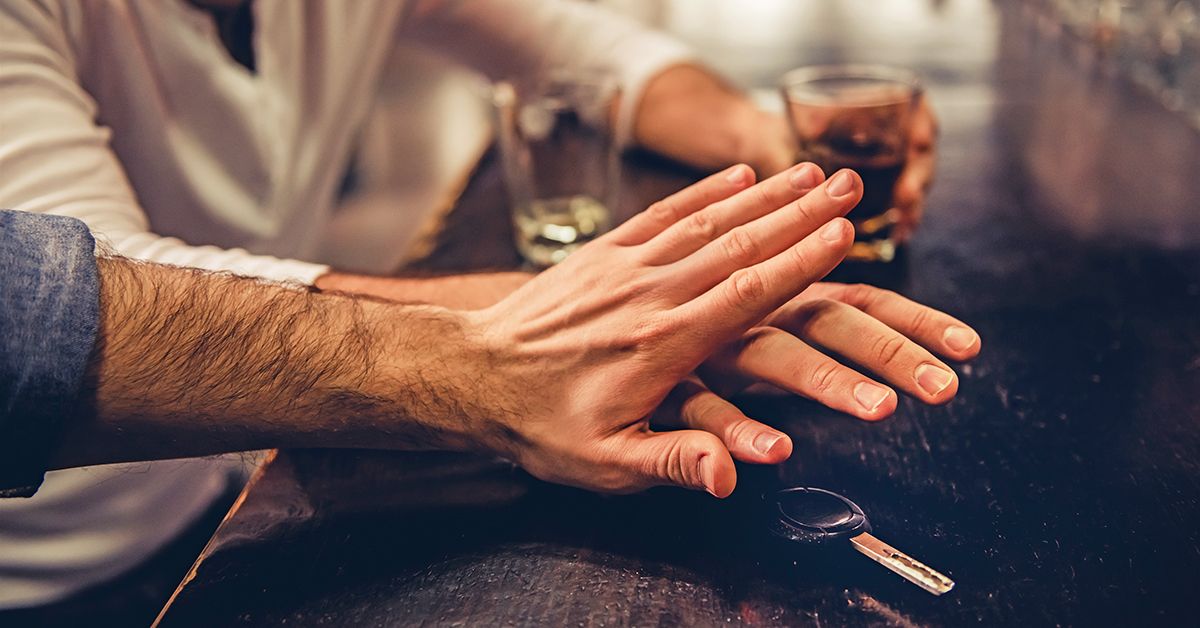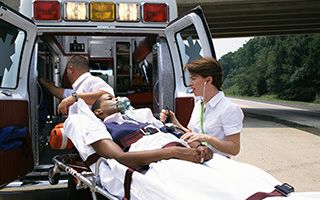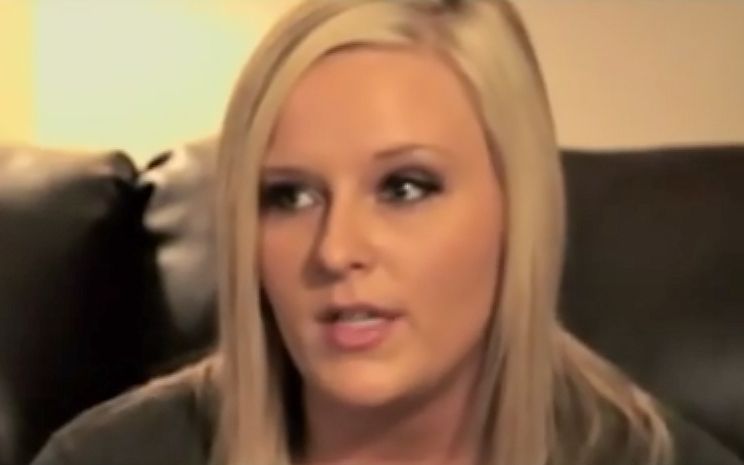
Many decades ago, Americans may not have thought as much about drunk driving as they do today.
The penalties weren’t as tough back then, the media hadn’t yet made anti-DUI messaging a priority, and drivers might not have known just how common and deadly the problem was.
These days, though, almost no one can claim to be truly unaware of the grave threat posed by drinking and driving.
We’ve all heard the horror stories, seen the shocking news videos, or driven by roadside memorials for those who’ve perished at the hands of an inebriated driver.
Indeed, you may very well have lost someone in your own life due to a drunk-driving crash.
Given this heightened state of awareness, one might expect drunk driving to be a thing of the past. Sadly, that isn’t the case.
While there has been some improvement across the span of many decades — alcohol-related traffic fatalities have declined by 51% since 1982 (80% for drivers under 21) — the grim reality is that drunk driving remains extremely common in the state of Washington . And it’s as deadly as ever.
Just how bad is the problem? Below, we share some of the latest drunk driving statistics for Washington State and for the United States at large. Our hope is that you’ll be renewed in your commitment to safe driving.
In fact, we will even review some tips for avoiding drunk drivers, and we’ll also provide an overview of your rights as a victim after being injured by someone who was too drunk to drive.
National Drunk Driving Statistics
- 3.3 out of every 100,000 Americans were killed in an alcohol-related car crash during 2016 alone.
- That comes to a Year 2016 total of 10,497 Americans killed in drunk driving crashes in which the driver had a Blood Alcohol Concentration (BAC) of .08 or higher. 67% of those deaths (7,052) involved a driver with a BAC of at least .15.
- 28% of all traffic deaths in the United States during 2016 involved alcohol. (The CDC puts this number at roughly 1 in 3.)
- 10% of those killed in U.S. drunk driving accidents are under the age of 21.
- According to the CDC, despite the improvements made over the last few decades, “drunk drivers still got behind the wheel millions of times in 2010.”
- There is some good news, however. The overall death count from drunk driving has decreased by 49% (and by 68% for drivers under the age of 21) since 1991.
Washington State Drunk Driving Statistics
- Between 2003 and 2012, 1,921 people died in an alcohol-related accident in Washington.
- There were 161 drunk driving fatalities in Washington during 2016 alone. (14 of those deaths were people under the age of 21.)
- People age 21 to 34 represent the largest DUI victim group, with 4 deaths for every 100,000 Washington residents in that age group. DUI deaths disproportionately impact young people — not only young drivers but also passengers and pedestrians.
- According to the CDC, men in Washington suffer a higher rate of death in alcohol-related accidents (5.2 per 100,000) than women (1.5).
- In a national study, 2.1% of adults in Washington reported driving after excessive drinking within the last 30 days. That’s slightly higher than the national rate of 1.9%. Of course, this figure does not include those who didn’t answer honestly or who misjudged their own level of intoxication.
- Washington was one of only four states to see no change in its drunk driving fatality rate between 2015 and 2016. (Many states got better; some got worse.) But when we study a larger span of time — 2007 to 2016 — we do see an overall improvement of 26.4%. Among drivers under the age of 21, the rate of improvement during that same decade was even more pronounced: 49.1%.
Why Is Drunk Driving So Dangerous?
People hear all the time that drunk driving is dangerous.
But the problem might be that some drivers — especially those who are prone to driving under the influence again and again — might simply choose not to believe those warnings.
This is a problem sometimes described as “confirmation bias” or “experience bias.” When a person drives drunk and returns home unscathed, they might conclude (mistakenly) that it wasn’t so dangerous after all.
Each time this person gets lucky and avoids an accident, their misguided belief gets reinforced. They may begin to think that, while other drivers can’t handle their alcohol, they have special skills or extraordinary judgment.
Indeed, studies show that nearly all drivers — drunk or not — tend to overestimate their driving abilities. It is the myth of invincibility.
The reality, of course, is that no one is capable of driving safely after consuming too much alcohol. There is no such thing as cautious or experienced drunk driving.
That’s because alcohol interferes with numerous cerebral functions simultaneously. Driving already demands a tremendous amount of cognitive processing, even when we’re sober. Alcohol slows those processes, and the brain simply can’t keep up.
In fact, even if you’ve had just 1 or 2 beers and are still below the legal BAC limit, you are still 1.4 times more likely to have an accident than a completely sober driver.
Add another two drinks (for a total of four), and the average person is now nearly ten times more likely to crash.
Once your BAC reaches .10, you are seven times more likely to die in a car crash that night. At .15, you are 25 times more likely to die.
Sadly, people who choose not to believe the drunk driving statistics are at risk of learning their lesson the hard way — and taking other, innocent people with them.
How Can You Protect Yourself from Drunk Drivers in Washington?
Sadly, there is no way for any one person to stop everyone else from driving drunk. Anytime you hit the road, you’re taking a risk that someone else might be behind the wheel while intoxicated.
Fortunately, there are some steps you can take to prevent the likelihood of ending up in an alcohol-involved accident:
- Try to avoid driving late at night whenever possible.
- Avoid driving on major holidays, which have the highest rates of DUI and drunk driving fatalities.
- Never attend a party where alcohol will be served without appointing a designated driver beforehand. Better yet, offer to serve as the designated driver yourself.
- Keep a taxi number stored in your phone. You might also install apps like Uber or Lyft on your smartphone.
- Encourage others not to drive drunk. Peer pressure works both ways. Use it for good.
- If you spot someone else driving recklessly, keep your distance. Try to exit off the road safely until they pass.
- Remain vigilant while driving. Anticipate that others might be drunk and be prepared to drive defensively.
What Are Your Rights if Injured by a Drunk Driver in Washington State?
Every driver owes a duty of care to the others on the road. Carrying out that duty means obeying the law. Drunk driving is illegal, and those who choose to do it can be held accountable. The same is true for motorists under the influence of illegal drugs or prescription medications that impair their ability to drive safely.
If you or someone you love has been injured or killed by a drunk driver in the state of Washington, you may be entitled to substantial financial compensation.
Drunk drivers are liable for the damages they cause, which might include:
- Bodily injury
- Medical bills
- Emotional distress
- Property damage
- Lost wages
- Loss of love, affection, and support (in wrongful death cases)
- Other losses, depending on the facts and circumstances of the claim
Insurance companies are sometimes quick to deny victims the full and fair compensation they deserve. But an experienced Olympia personal injury lawyer can fight back and demand that you and your family get the justice you deserve.
Schedule a Free Consultation with a Fuller & Fuller Auto Accident Lawyer
The Olympia personal injury attorneys at Fuller & Fuller Law Firm have more than 35 years of experience in fighting for the rights of people unfairly injured by drunk drivers.
We do not charge clients a fee unless we get them a recovery first. Even then, our fee is only a portion of the overall recovery. And the initial consultation is always free — with absolutely no obligation. But remember: legal time limits apply to filing a claim for compensation, so please don’t delay.
Fuller & Fuller Law Firm proudly serves clients all across the state of Washington, including in Olympia, Tacoma, and beyond.
We are a family of lawyers (literally), and we think of our clients as family too. So let us fight for you. We bring passion, energy, and resolve to every single claim we handle. We promise to give you the time, attention, and respect you deserve.
Give us a call at (800) 570-4878 or contact us online and get started with a free consultation right away.






